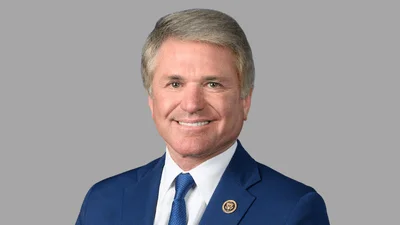Dear Ambassador Schwab:
In negotiations and other discussions with our trading partners in the coming months, we urge you to set a new course that will promote both pharmaceutical innovation and the health of patients in developing countries. We also ask you to take steps to ensure that public health experts be given an opportunity formally to advise you in the development of trade policies that relate to public health.
According to a recent United Nations report, 15 percent of the world’s population today consumes 90 percent of the world’s medicines. Improving access to medicines in developing countries is not only a vital humanitarian objective; it also has the potential to expand opportunities for innovative U.S. pharmaceutical companies. Pharmaceutical companies gain nothing when patients in developing countries have inadequate access to their products.
We, like you, have worked to ensure that our trading partners do not discriminate against innovative U.S. pharmaceutical companies - companies that have worked to achieve extraordinary advances in public health. For example, a number of our developed country trading partners adopt price controls, “reference pricing," and other reimbursement policies that in the abstract do not raise concerns, but as applied, can discriminate against innovative medicines from the United States in favor of a local industry. Such discriminatory measures do not contribute to the goal of improving public health; in fact, they detract from it. Accordingly, we have long advocated for a proactive approach to address discriminatory measures, and we support the efforts you and others in the Administration have made with us to address these issues.
We cannot support, however, a statement that was made in the 2008 Special 301 Report with respect to Thailand. The report suggests that the issuance of compulsory licenses - a right under the TRIPS Agreement - is, per se, inconsistent with the “adequate and effective" protection of intellectual property rights. This assertion is without explanation and apparently inconsistent with the declaration the United States and other WTO Members made in 2001 that “each Member has the right to grant compulsory licenses and the freedom to determine the grounds upon which such licenses are granted."
To be sure, the issuance of compulsory licenses can raise legitimate concerns in some circumstances. For example, compulsory licenses should be issued only on a case-by-case basis, not as part of a blanket policy. And, even where a government issues a compulsory license, that government is required to pay the patent holder “adequate remuneration in the circumstances of each case." But it is a gross oversimplification to suggest that compulsory licensing necessarily and per se is inconsistent with the protection of intellectual property rights.
The existing imbalance between incentives for innovation and access to medicines in developing countries may reflect, in part, an imbalance in the advice USTR receives from the international trade advisory committees. In a 2002 report on the trade advisory system, the U.S. Government Accountability Office found that “new stake holders in the trade process, such as public health [experts]... have limited or no participation in the formal committee system." Similarly, five years later, the GAO stated that, since Congress granted trade promotion authority in 2002, “public health input into U.S. trade negotiations has been limited."
We therefore urge you to take steps to ensure that public health experts are represented in the formal trade advisory committee system. This could mean the creation of a new advisory committee that could address public health issues, including in developing countries, or an advisory committee on trade and development; it could mean the appointment of public health representatives to the existing relevant trade advisory committees; or it could mean some combination of these two approaches.
In the May 10th agreement, we struck a better balance between encouraging pharmaceutical innovation and providing access to medicines in developing countries. We hope we can now work with you to find that same balance in other areas where trade policy and public health intersect.
Sincerely,
The Honorable Charles B. Rangel
The Honorable Sander M. Levin
The Honorable Rahm Emanuel
The Honorable Chris Van Hollen








